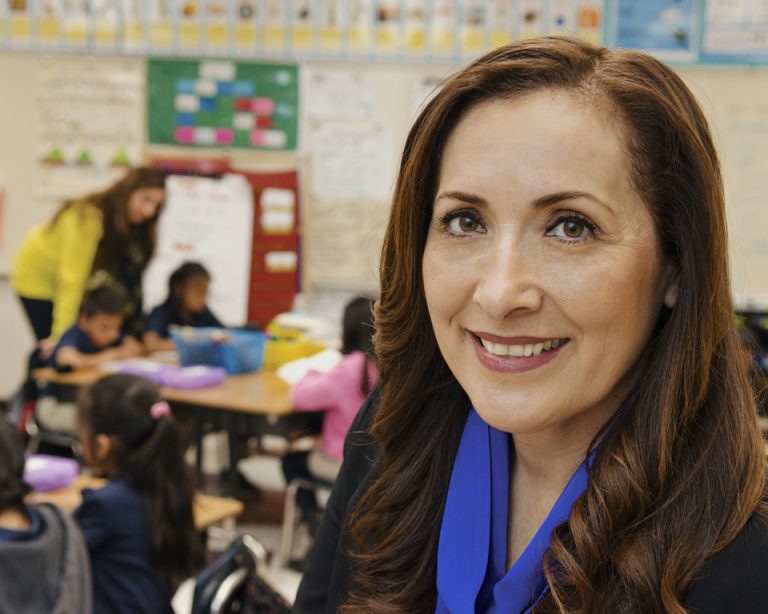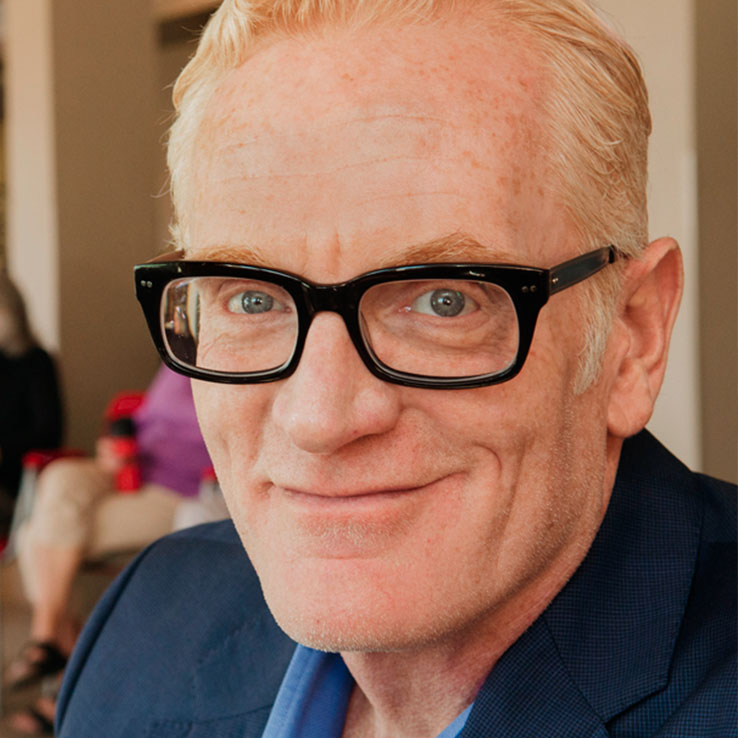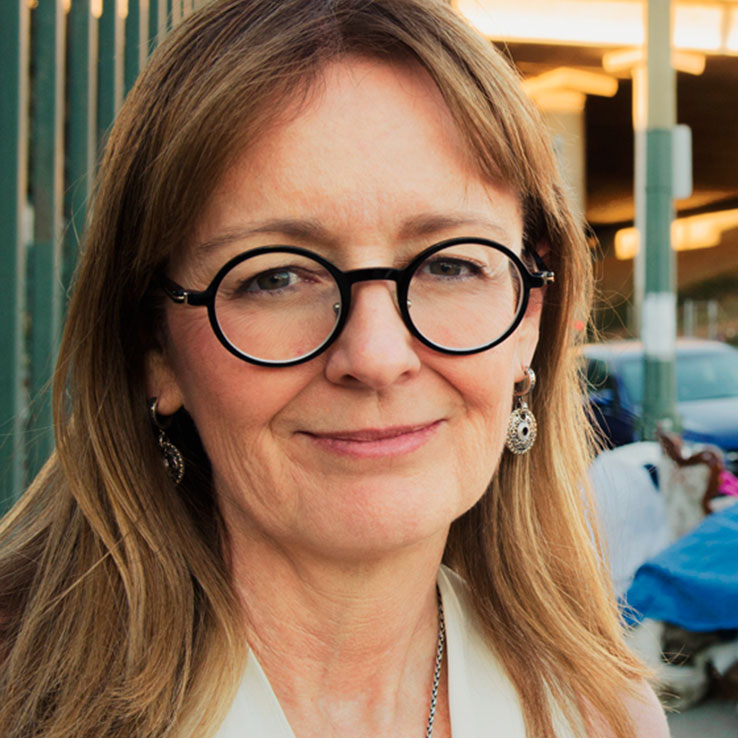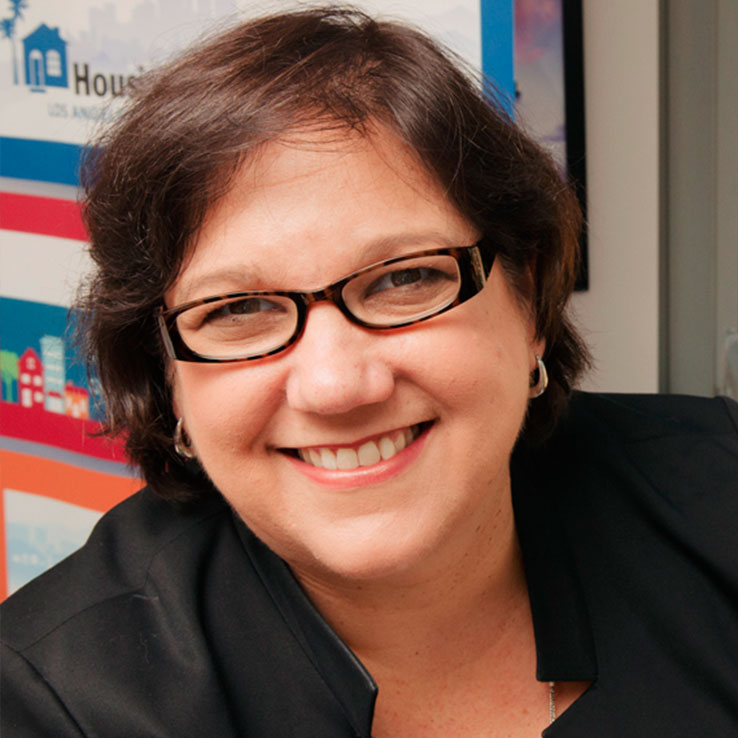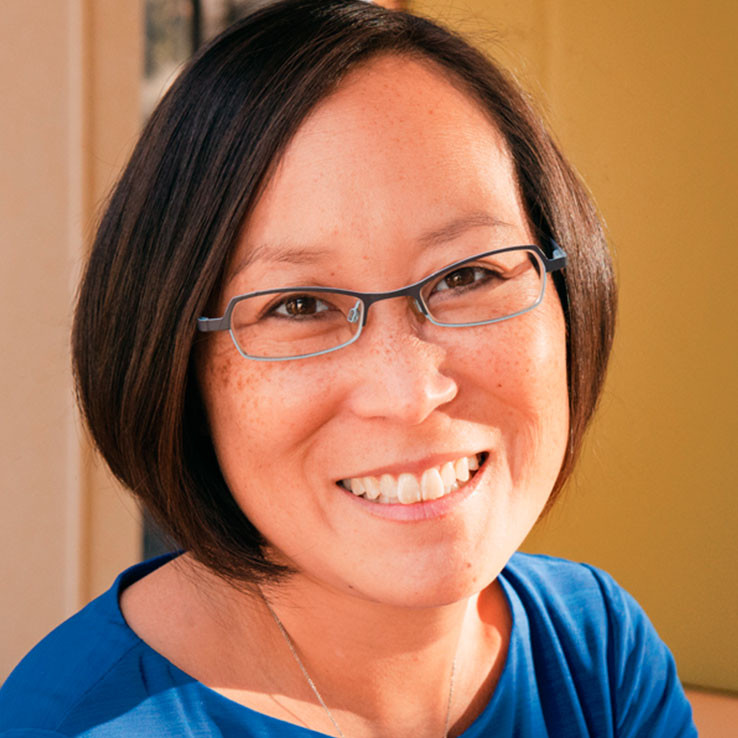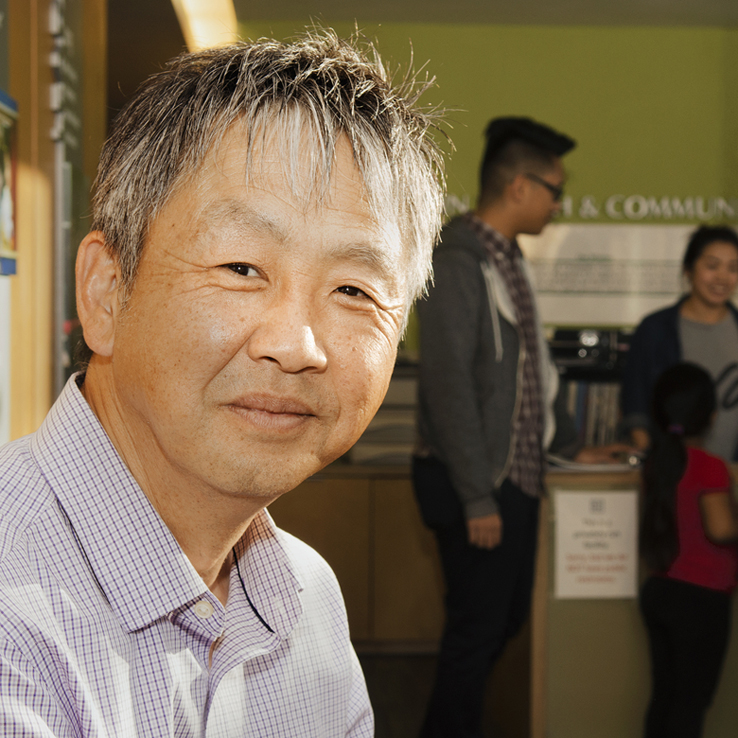Hilda Maldonado is the Executive Director of the Multilingual and Multicultural Education Department at the Los Angeles Unified School District, where she oversees policy, leadership and instructional issues that affect students for whom English language learning can become a barrier to college, career and a life out of poverty. A former teacher and school principal, she wants to explore how we might leverage the multiple languages in L.A. as assets rather than deficits. She seeks to influence not only LAUSD, but parents, employers and the broader society.
Fellowship Summary:
The Challenge: Los Angeles Unified School District is the second largest school district and the nation’s largest English learner enrollment district with over 93 languages spoken. The City of Los Angeles has a diverse population with a myriad of languages. I am interested in the question of how might we leverage the multi languages in Los Angeles as assets rather than deficits? As part of this mega question I would also like to answer the following questions:
- 1. Why is literacy such a strong barrier for many students in the US when some Third World countries have higher literacy rates?
- 2. How might Los Angeles leverage the languages spoken in the city to improve outcomes for its residents and lift youth and their families out of poverty?
- 3. Why do so many of our students fail to thrive in our school system? How does language and poverty impact their learning?
The Hunch: I wanted to figure out how an education system could address the issue of educating students in a language they didn’t yet understand and who were showing severe delays in mastering literacy and reading comprehension. I also wanted to learn more about how these students home language might be valued and leveraged to learn a second language. My hunch was that other educators, systems and countries might have a solution that I hadn’t yet thought of or an approach that our district had not yet implemented.
The Proposal: As the leader of policy and programs in LA Unified, my position gave me a bird’s eye view of the systemic inequalities and barriers that many educational practices created for students, teachers and leaders. The Stanton fellowship provided me with the opportunity to take a step back. I may have become too bureaucratic and had lost sight of how to keep pushing our organization to improve in the delivery of services to families and children. As I researched, read, reflected and met with other leaders of the work, I began to bifurcate my thinking about the work between a systemic view and a professional leadership view. Additionally, in the middle of my fellowship voters in California passed the Proposition 58 law eliminating the decades old education code requiring English Only instruction for public school students. This windfall legislation completely changed many of the restrictive language policy practices. However, implementing this law proved to be harder than expected and the lack of knowledge and interest by leaders and educators presented a whole new set of challenges. I noticed that many bilingual leaders were not feeling hope and pride but rather fear and shame in their work with English Learners (Emerging Bilinguals). I too, recognized that I felt the same way as a student.
The Stanton Journey: My process consisted of convening English Learner leaders, reviewing research and interviewing experts, practitioners, and students. I attended a conference in Mexico City and visited Barcelona, Madrid and Valencia in Spain to observe and interview education leaders working with dual language/bilingual education. I found that the way in which I approached my executive director duties began to change as I learned more about the outside influences and stakeholders that impact education. As an example, once voters passed the new Proposition 58 laws in California I put together a transition team consisting of representatives from all central offices such as Human Resources, Budget etc. I also reached out to labor partners and parent representatives. It was through continuous relationship building that I began to realize that my role and its impact could be changed. As the Proposition 58 team began to form, we were able to convene level alike groups of parents, teachers and principals. Through the convening we listened and learned that the tools we needed to create had to be simple and to the point. As I reflected during the self-retreats on the process of my own learning, I realized I was making things too complicated. I was being rule bound and not person bound in the development of the resources and approach to the work. I was asked to join a statewide coalition of leaders in California to work on a new state plan, and found that through my leadership growth, my voice of advocacy began to change. I began to speak from a place of pride and courage. The organizational and transformational leadership that was needed to support students came to life and I no longer felt like the immigrant child that had become the executive director. Instead I felt like the worthy human being that came from a culture and family that offered a lot to this country and city. Just like the process of becoming a butterfly I felt myself-metamorphose into a more calm and confident leader through the work of building relationships, gathering information from experts, listening and learning at both a personal and professional level.
Where You Are Now: At the end of my fellowship I convened with a consultant. My purpose was to find ascertain the outcome of the leadership retreat that I had gathered one additional time in the spring. The consultant conducted a survey and a set of interviews with the leadership retreat participants and found that “it is not enough to know the native language, leaders must be willing to understand bilingualism and see it as an asset, engage in research based strategies, engage families and collaborative strategies to better understand how to leverage and learn from the assets of emergent bilinguals.” She also identified common themes that can be acted upon when working with this population such as: Social Emotional Learning, Valuing Multilingualism and Multiculturalism, Family Connections, and Building Alliances and relationships. The interviews revealed more importantly that learners and leaders in this work suffer trauma, compete for limited resources and lack of support. Leaders have to leverage laws to push for Multilingual friendly legislation and understand the lack of recognition of students’ cultural capital that schools devalue and suppress. It is my intent to further understand this knowledge in the work that I engage in going forward, not only for myself, but in the interest of the students and leaders that enter our classrooms on a daily basis. Overall, school environments must change from instilling fear and shame to cultivating pride and courage. A caterpillar becomes a butterfly at the right time and under the right conditions. Accelerating or slowing the process only results in a loss. The Stanton fellowship opportunity gave me the wings and the ability to use my voice for the benefit of others.
